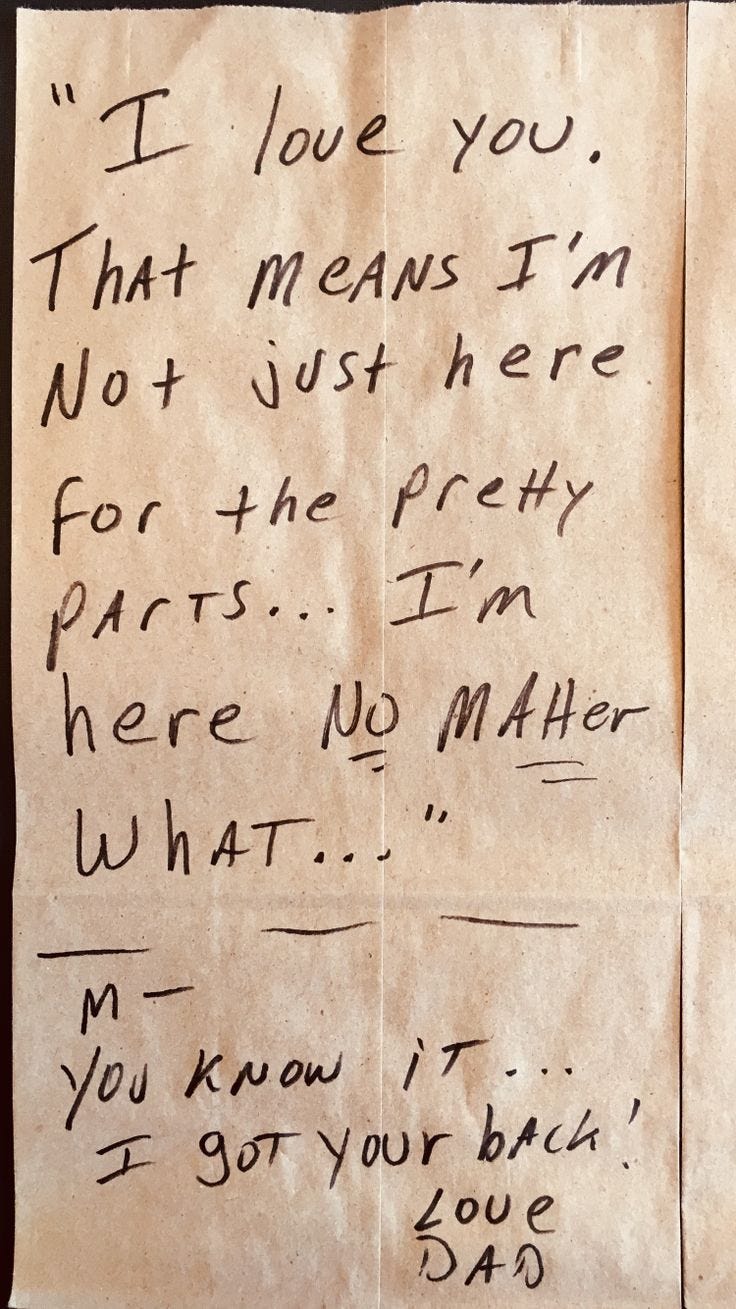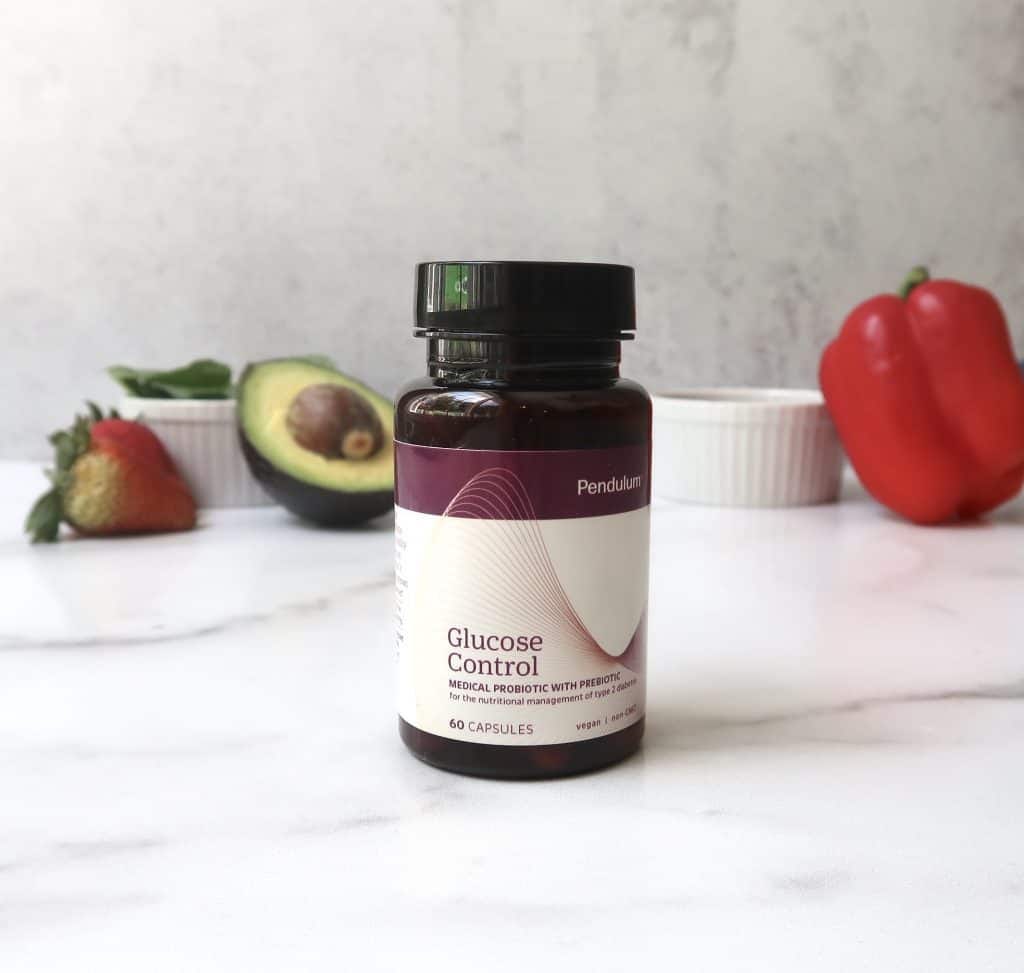Deep Profiling, a Sequoia-backed Gut Probiotic, and more
Bom Dia! I started writing this issue with my feet still dusted in Portugese sand. I was at a retreat for Other Internet, a research group that develops narratives and software primitives directing technology towards a fun, free, and equitable future. Watch closely for our new projects 👀
Truepill also announced its Series D. TP builds white-label infrastructure for consumerized healthcare, and I lead work related to population health, Medicare/Medicaid, and HRSA programs. Drop a line if you are interested in partnership opportunities or open roles.
🌱 Onward to plant seeds of healthcare curiosity.
The Future is Deep Profiling
Hall entered a booth and closed the door behind him. There was a couch, and a mass of complex equipment. In front of the couch was a television screen, which showed several lighted points.
"Sit down," said a flat mechanical voice. "Sit down. Sit down."
He sat on the couch.
"Observe the screen before you. Place your body on the couch so that all points are obliterated."
He looked at the screen. He now saw that the points were arranged in the shape of a man...
In 1969, Michael Crichton’s Andromeda Strain imagined an electronic body analyzer, one developed initially under a general government contract to produce body monitors for astronauts in space. Crichton makes a mundane but true-to-life remark: initial scans with the body analyzer stood at a cost of $87,000 each. “It was understood by the government at that time that such a device would eventually replace the human physician as a diagnostic instrument.”
I delight in sci-fi magic entering ordinary settings, and we’re heading there with deep profiling.
Bodies “age” differently. Some of us are metabolic agers, immune system agers, heart agers. But we can’t surmise our unique biological states from one-off clinical tests. Deep profiling practices allow us to establish baseline measurements and regularly test / quantify our bodies to understand shifts before the appearance of disease. We’re rewarded with a trove of longitudinal big health data. Deep profiling takes numerous forms with current permutations combining genome sequencing with wearables, metabolic profiling, hereditary panels, liquid biopsies, imaging, and next-gen protein sequencing.
But perhaps deep profiling still sounds speculative. In this BIOS interview, Stanford’s Mike Snyder, PhD (founder of QBio and January AI) gives material examples including one related to Covid-19.
Gene expression can alter after viral infections. Quite a few people, 14% in certain studies, developed Type 1 and Type 2 Diabetes after severe corona infections with labs tying changes to epigenetic regulation of immunology cells. The more we deep profile over time, the more we’ll glean personalized insights like this.
I vibe hard with open source deep profiling projects. Bryan Johnson’s Blueprint aims to measure 70+ of his organs and optimize each to a quantified biological age (i.e. trying to make each organ as healthy / young as possible):
Isaak Freeman’s Project Surpass documents interventions for physiological self-improvement. Many of his interventions, which span fitness, supplements, surgeries and biomedical treatments, could be measured with deep profiling techniques. 44% of participants in a multi-year deep profiling study at Snyder’s lab have learned something critical about their health (three people had pre-cancerous biomarkers and another detected asymptomatic lymphoma).
I’ve signed up for a few of these studies - and you can too. Tinkering biohackers may have nurtured the initial community of deep profilers, but it’s pretty clear to me more companies/projects are on the cusp of serving a general consumer base. Imagine how different a doctor’s visit could look - we might be hanging out in a skunkworks lab - and the implications for (preventative) care! One step close to realizing our Crichton-esque future.
White Bagging vs Brown Bagging Drugs
I assume every entity in healthcare schemes novel ways to secure the bag. I’ve learned more about one lever: specialty drug purchasing strategies. A specialty drug is a high-cost medication used to treat complex, chronic conditions like multiple sclerosis. Specialty drugs like injections and infusions often involve an element of special administration. Patients receive careful oversight from a health care provider who educates, ensures correct dosage, runs concurrent lab testing, etc.
There are two major acquisition strategies for specialty drugs.
White bagging - most common for hospitals, healthcare providers purchase and stock drugs from a manufacturer / wholesaler. Providers absorb the cost until insurance is billed a flat fee for a drug during patient admission. Typically this is covered under insurance medical benefits because the patient didn’t acquire the drug from a pharmacy.
Brown bagging - in outpatient settings like a gastroenterology clinic, specialty drugs can be sold separately. Just like batteries in action figures from the ‘90s. Providers send prescriptions for patients to receive treatment in a specialty pharmacy or to pick up the drug - in a “brown bag” - and bring it back for administration.
Chemotherapy agents offer a simple template of white bagging: oncology offices stock generics instead of low utilization branded agents which are often higher priced and have nebulous reimbursement status.
A 2018 National Association of Boards of Pharmacy (NABP) report found that 1/3 of medical benefit drug volume was fulfilled by specialty pharmacies or patient brown bagging. Because they don’t have to cover as many upfront costs, brown bagging increases margins for clinics. But it can increase financial and operational burdens on patients. Incorrect drug storage by patients breeds drug inefficacy. And coordination is even more insidious: if pharmacies don’t have full information, shepherding information between patients, physicians, and insurance poses a threat to timely patient care.
Kind of cute that next time you see a brown bag, the inspirational quote may be from a pharmacist :’)
Could the Human Body Survive on Dune’s Arrakis?
If stillsuits were real, yes.
Medical Food That Could Treat Type 2 Diabetes
Like 95% of links on Wikipedia leading back to the “Philosophy” article, pretty much all of human health descends from microbiology. Functional bacteria strains help produce key molecules that confer health benefits and protect against pathogens. Without them, we lose gut microbiome complexity tied to conditions including diabetes.
Enter Pendulum Therapeutics, a Sequoia-backed startup led by an impressive team of computational biologists and clinicians. Pendulum is developing a probiotic portfolio (products with live microorganisms) that augment dietary management of impared glucose metabolism.
An individual’s diet is deeply tethered to chronic conditions. Pendulum is an example of what I call New Pharma, companies producing medical food. Outside of clinician-prescribed therapeutics and less regulated dietary supplements, rigorously-tested medical food is going to enter the market. Pendulum’s clinical trials articulate how DNA sequencing identifies glucose metabolizing strains. You can imagine these methods applied to bacterias affecting gastro conditions, coronary heart disease, inflammatory diseases, etc. yielding new medical food formulations.
Pendulum has partnered with the American Diabetes Association as their studies increasingly show efficacy on a comparable level to synthetic biosimilars. The FDA already designates Pendulum’s products to be GRAS (generally recognized as safe). Seasons Health, from the former Plated founder, is another company focusing on food as medicine.
In case it wasn’t evident, I’m BUZZING. New Pharma could blow up the healthcare establishment as we know it.
Hiring
Levels is recruiting a visual designer. They're remote-first, well-funded and consumer-oriented in their thinking about cardiometabolic optimization and health. Will get you to a conversation with their CEO if it’s the right fit!
Interesting Tweets and Links
Apple is testing features that detect depression and cognitive decline. WSJ reports that the work was born out of collaborations with UCLA and Biogen
Alphabet spins out an engineering drug discovery company. I’m personally tracking Isomorphic and expect it might have more success than Verily:


I virtually attended the impressive Pillar VC and PetriBio’s Founder-led Bio Summit. Drūl, co-founded by Brent Ifemembi and Nelson Ndahiro, caught my attention when they won a pitch prize on Thursday. Drūl is developing an at-home diagnostic that analyzes drool/saliva for the early onset of oral disease
Love this equity-themed issue of Grow:

A Tik Toker disrupted thousands of scientific studies by overloading a survey platform with interested participants
23andMe acquires Lemonaid Health
Former Accolade founder launches Patina Health to reimagine healthcare and aging for people 65+
New study shows Guardant’s liquid biopsy can detect 96% of early-stage colorectal cancer cases with a single blood draw. Might mean fewer colonoscopies (if NCQA, which measures and accredits health plans, changes colorectal cancer screening options)
A few issues ago I commented on poetic analogies that help us make sense of a complex world. But perhaps trite branding anologies are becoming worryingly too common in health and bio. Pablo dives deeper into this incongruity:


----
Thank you to my confidant Kristin McDonald for her comments. The section on deep profiling germinated in conversation with VitaDao’s Vincent Weisser and Pamela Mishkin (over pistachio coffee at Bonanza, of course).
Disclosure: I don’t have a copywriter so yolo on the typos. This post does not represent the views of my employer. I am a scout for a16z’s healthcare and bio team.







